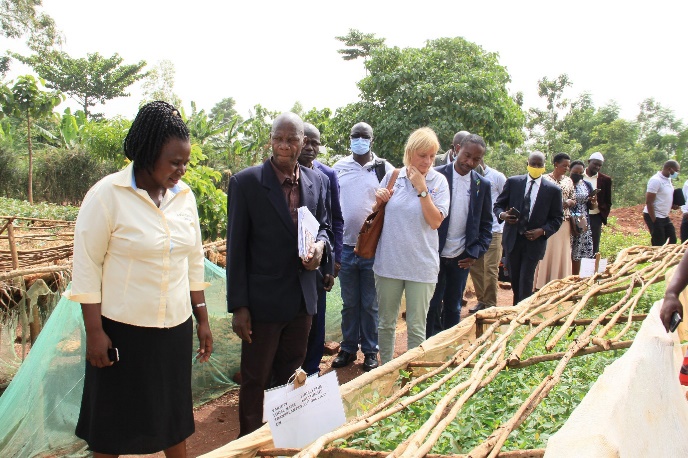DVV International is working in East Africa and the Horn of Africa region, in Ethiopia, Uganda and, since 2020, in Tanzania. All three countries face similar challenges in the service delivery of adult learning and education (ALE). ALE service providers in these countries have difficulties in meeting the needs of communities that tackle issues related to illiteracy and income generation, in coping with the underfunding of ALE programmes, and in allowing for strong coordination between the different actors in the ALE sector and beyond.
Peer learning visit on ALE service delivery
DVV International, in cooperation with the Uganda Ministry of Gender, Labour and Social Development (MGLSD), conducted an exchange visit in Uganda from 14-18 March 2022. The visit was to facilitate peer learning and experience sharing between the three countries in ALE programming and service delivery.
This peer learning visit was conducted with the following objectives:
- To share experiences on approaches and structures of integrated ALE service delivery.
- To learn about the Community Learning Centres (CLC) model in Uganda and Ethiopia.
- To familiarize all parties with the peer review methodology for ALE system assessment in the frame of the ALE System Building Approach.
- To identify areas for further experience sharing and networking.
This peer learning visit consisted of a two-day workshop and a field trip to Community Learning Centres (CLCs) in two districts (Namayingo and Iganga) in Uganda. The delegations from Ethiopia and Tanzania consisted of representatives from politics, civil society and the adult education sector.
This peer learning visit allowed key stakeholders in the sector from the three countries to exchange information on lessons learnt in their programme implementation processes and discuss approaches that have been successful in overcoming common challenges. The stakeholders agreed that integrated ALE programmes are successfully meeting the needs of communities if they combine literacy and numeracy training with other forms of skills trainings.




